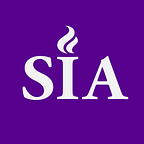by Binaya Raj
The term “world” as used here isn’t conceived as “order” in terms of peace and prosperity; It, however, closely relates with the idea of “balance of power.”
The term “world order” has lost its idealistic foundation. The term “world order” or the later coinage, “new world order”, as perceived by George H.W. Bush and Mikhail Gorbachev in a December 1988 speech to the United Nations General Assembly has come under scrutiny from notable intellectuals such as Noam Chomsky, Francis Fukuyama (End of History), Samuel P Huntington (The Clash of Civilization). All of these thinkers criticized the idealistic grounds shared by the post-cold-war leaders. Back to the current context, the US has been the prominent force of international relations for a long time, after the fall of Europe as a “global power” . The notion is however changing with China in rise. The dynamics are changing even faster with the increasing importance of BRICS (Brazil, Russia, India, China and South Africa) nations.
In the changing dynamics, one organization that binds all these nations together, United Nations, is particularly important, particularly the UN Security Council. The UN Security Council is the most criticized among six principal organs of the UN for its veto power. Veto power is power granted to five permanent member countries of the Security Council, China, France, the United States, the United Kingdom, and Russia, which can dissolve any resolution passed by the general assembly of all member nations; in other words, a resolution can’t pass unless there is a unanimous acceptance from five member countries. However, it is not prescribed that the UN is failing. Indeed, the crisis faced by the world would have been manifold severe without existence of organizations like UN. But, the notion of the Security Council is flawed, even within the grounds of power. For example, as a growing power and in search of power base in the security council, India seems to challenge the existing five powers. If not observed on the grounds of power, the concept of veto seems as a persisting explicit domination of some nations over others.
The BRICS and the Security Council is a notion of othering. It has created a separation among the nations. The world is divided into groups according to the notion of power. Few powers are the central players and rest of nation are “others”. These “other” nations lose their presence from international arena and are forced under the domination of the powerful nations, and follow the power balances as deemed fit for the “powerful” nations, and nonetheless the power domination seems to be “obvious”, a self-evident axiom.
Today, there is a surge in the need of world order, a notion of hierarchy of power defined mostly through the virtual apparent size of economic pockets of each country. The idea then creates a notion of having more power, restricting the understanding of other nations. But this imposition has an impact more than just the economic and political one. The legitimacy of world order, the notion of domination over the smaller nations, and the concept of big powers and the othering of other countries is deemed obvious. It seems as an imperialistic mode disguised under the name of Security Council, to exert the power and “remind” of their domination, a notion of devaluation of the other nations, smaller nations.
In times when a concept of domination like “world order” establishes as something obvious and self-evident, it is worth asking a few questions about the “obvious.” The questions like how does this supremacy affect small nations? How does this power order establish a competition to be most powerful affecting their resource allocation (GDP distribution, military fundings) to be in this power game? What does historical evidence suggest about these power struggles? Don’t these orders restrict the meaningful relations we can build among nations? Who benefits from the existence of such frames of power, how and why?
